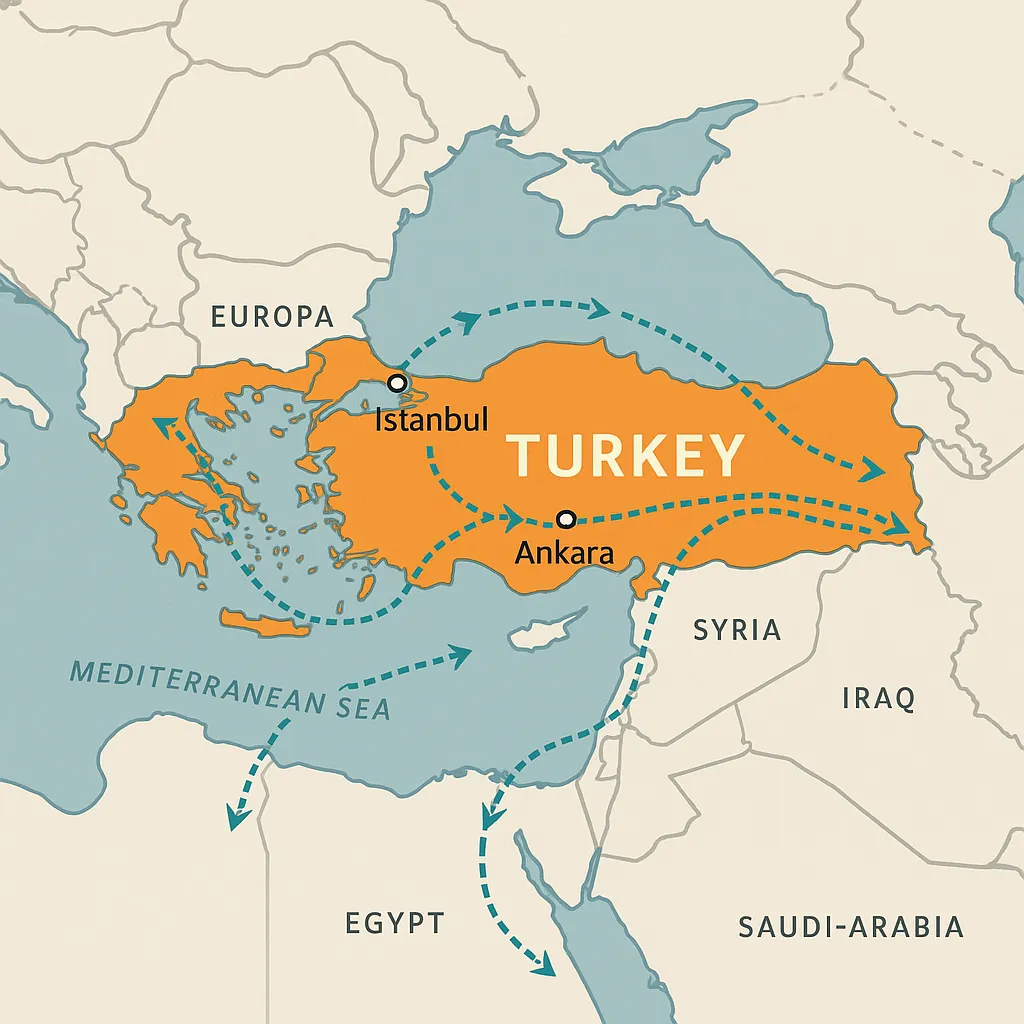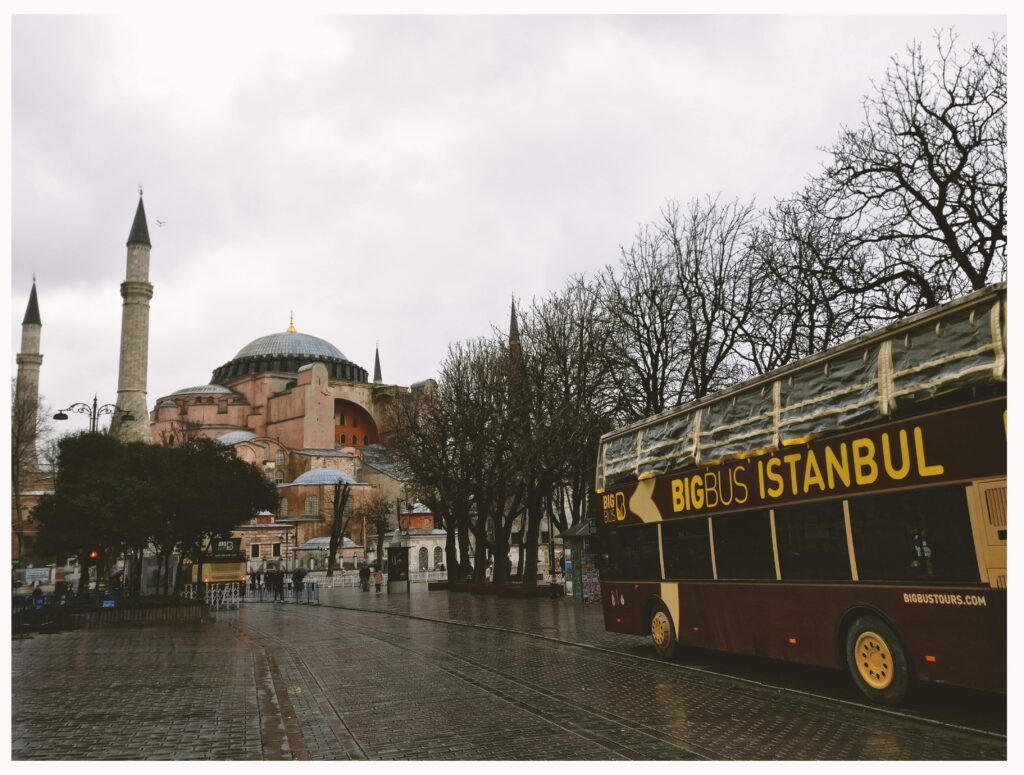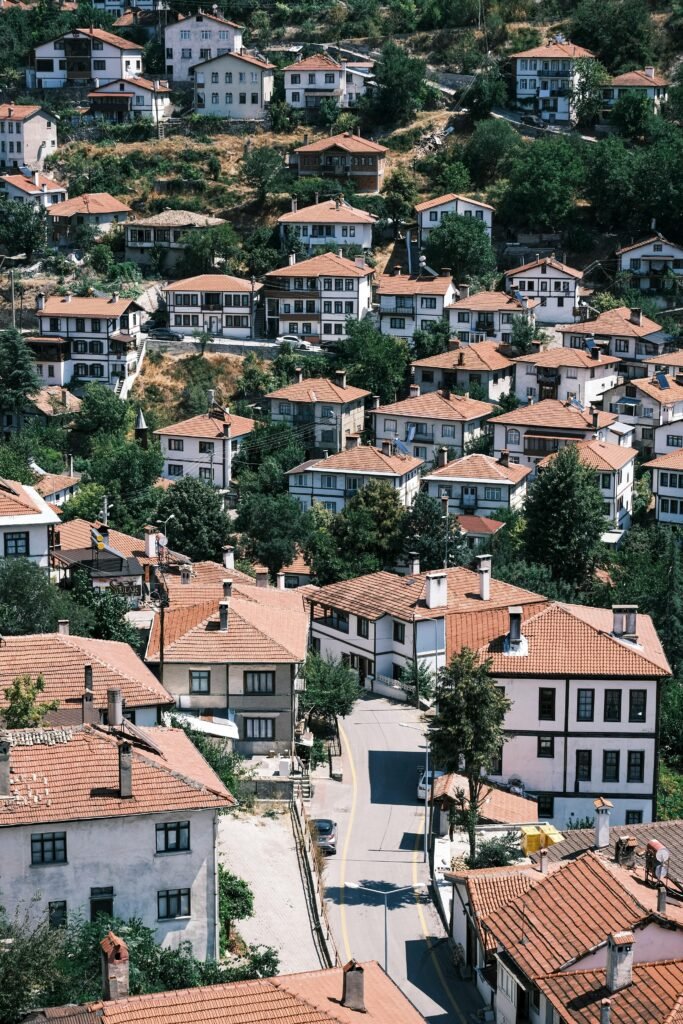Global investors are increasingly drawn to Turkey’s thriving real estate sector. With its booming economy, strategic location bridging Europe and Asia, and affordable prices compared to many Western countries, Turkey offers a unique opportunity for both lifestyle buyers and investment-focused purchasers.
In recent years, foreign interest in Turkish property has surged, driven by incentives like citizenship by investment, high rental yields in tourist hotspots, and a growing expat community. Cities like Istanbul, Antalya, and Bodrum are particularly popular, offering a mix of modern luxury, coastal charm, and strong capital appreciation potential.
But there is a question in everyone’s mind.
Does buying property in Turkey make financial sense in today’s market? While the benefits are compelling—such as residency options, low entry costs, and a thriving tourism sector—there are also risks to consider, including currency fluctuations and legal complexities.
In this guide, we’ll break down everything you need to know before investing in Turkish real estate, from the best cities to buy into to the legal process, financing options, and long-term benefits. Whether you’re looking for a holiday home, a rental income source, or a pathway to Turkish citizenship, this article will help you make an informed decision.
Let’s dive in!
Why Invest in Turkish Real Estate?

Investing in Turkish real estate is attractive due to several key factors: strong economic growth, strategic geographic location bridging Europe and Asia, government incentives like citizenship by investment, and a booming tourism sector that drives rental demand.
Turkey offers affordable property prices compared to many Western markets, promising capital appreciation and attractive rental yields, especially in popular cities and coastal resort areas.
The legal framework supports foreign investment, and large-scale infrastructure and urban development projects further enhance property values and investment potential.
More specifically:
Economic Growth and Market Stability:
Turkey’s Economic Growth & Market Stability
A 10-year overview of Turkey’s GDP growth, inflation trends, and key economic indicators from 2014 to 2023
Economic Performance Analysis
Over the past decade, Turkey has demonstrated resilient economic growth with an average GDP growth of around 5%. The economy has shown remarkable recovery following the 2018 currency crisis, with strong export performance and domestic demand driving growth.
While inflation has been a persistent challenge, particularly in recent years, government policies and central bank interventions have aimed to stabilize prices and maintain sustainable growth. Foreign direct investment has remained steady, supported by Turkey’s strategic location and large consumer market.
Average GDP Growth
Turkey maintained an average GDP growth of approximately 5.2% over the past decade, outperforming many emerging market economies and demonstrating economic resilience.
Population Growth
With a population growing to over 84 million, Turkey’s expanding workforce and consumer base have contributed significantly to economic expansion and real estate demand.
Investment Incentives
Government programs like the citizenship by investment initiative have attracted foreign capital, supporting economic stability and growth in key sectors like construction and tourism.
Turkey has sustained around 5% GDP growth over the past decade, fostering real estate demand. Urbanization and a growing population (over 84 million) add to housing needs.
Strategic Location:

Turkey’s geographic position as a bridge between Europe and Asia makes it a critical hub for business, trade, and culture. This strategic location attracts multinational companies, expats, and investors, adding to the demand for both commercial and residential real estate.
Citizenship by Investment: Turkey provides a unique incentive for foreign investors—a pathway to Turkish citizenship by purchasing real estate worth $400,000 or more. This program simplifies residency, travel, and business operations in Turkey, making property investment even more appealing.
High Rental Yields:
Turkey’s High Rental Yields
Discover why Turkey offers some of the best rental investment returns in Europe and Asia
Average Rental Yields by Turkish City
Why Invest in Turkish Real Estate?
Turkey offers some of the highest rental yields in the region, significantly outperforming many European markets.
Key advantages:
- Rental yields ranging from 5% to 8% in major cities
- Strong tourism sector with over 44 million annual visitors
- Growing population with increasing urbanization
- Citizenship by Investment program attracting foreign buyers
- Favorable exchange rates for foreign investors
Investment Tip:
Properties in central areas of Istanbul, Ankara, and coastal cities like Antalya offer the best combination of rental yield and capital appreciation potential.
Top Performing Cities for Rental Returns
Istanbul
Turkey’s largest city with high demand for both long-term rentals and short-term tourist accommodations.
Antalya
Mediterranean tourism hotspot with strong seasonal rental demand and high returns during summer.
Bodrum
Upscale coastal destination with luxury villas and high-end tourist rentals commanding premium prices.
Key Factors Driving High Rental Yields
Tourism Growth
With over 44 million international visitors annually, Turkey’s tourism sector creates enormous demand for short-term rentals, particularly in coastal areas and Istanbul.
Urbanization
Turkey’s growing population and rapid urbanization drive demand for rental properties in major cities, especially among young professionals and students.
Affordable Prices
Compared to European markets, Turkish property prices remain relatively low, enabling higher rental yields as a percentage of property value.
Investment Programs
Turkey’s citizenship by investment program encourages foreign buyers, boosting both sales and rental markets as investors seek returns on their properties.
Istanbul, Antalya, and Bodrum rank among Turkey’s most visited destinations, with tourist numbers reaching the millions every year. These areas offer attractive rental yields, often between 6-12%, due to strong short-term and long-term rental demand driven by tourism and expatriate residents.
Tourism Sector: With over 44 million visitors annually, Turkey’s vibrant tourism market drives strong short-term and long-term rental demand, especially in cities like Istanbul, Antalya, and Bodrum, often yielding 6-12% rental returns.
Affordable Prices and High Returns: Compared to many European countries, Turkey offers competitive property prices, starting around €65,000 for many properties. This affordability allows investors to enter the market with relatively lower capital while still benefiting from potential price appreciation.
Modern Infrastructure and Urban Development: Ongoing investments in airports, roads, and urban renewal projects enhance attractiveness and property value growth.
Low Living Costs: Beyond purchase price, Turkey has low household bills and maintenance costs compared to many countries.
Together, these advantages position Turkey as an attractive property market for investors targeting appreciation potential, steady rental yields, and valuable residency perks in a fast-growing economy.
Best Cities to Buy Property in Turkey
Turkey’s most promising real estate markets span from Istanbul’s urban centers to resort hotspots like Antalya and Bodrum, plus growing regions such as Bursa, Izmir, and the Aegean coastal towns of Alanya and Kuşadası.
Key details about some of these cities:
Istanbul:

Turkey’s largest city and main commercial center, offering diverse property options from luxury apartments to historic mansions. It has strong rental demand and potential for price growth, with well-developed infrastructure and cultural attractions. Real estate prices are higher but investment is stable.
Antalya:

Known as the “capital of tourism” in Turkey with a mild climate, long coastline, and year-round tourism demand making it ideal for short-term rentals and resort properties. From beachfront high-rises to private villa compounds, the area offers diverse property types with attractive rental yield possibilities.
Bodrum and Muğla:

Southwest coastal areas with high tourism appeal, luxury villas, marinas, and a vibrant expat community. Tourism drives Bodrum’s economy while its real estate market specializes in upscale villas and waterfront properties.
Tekirdağ, Kocaeli, Yalova: Cities with significant recent growth, close to Istanbul, with opportunities in redevelopment, agriculture, and affordable coastal living.
Bursa: Historically important, close to Istanbul, known for culture, silk industry, and nature. It has a growing market with new residential and historic property refurbishment.
Izmir: Coastal city on the Aegean with a Mediterranean climate and strategic position, offering a mix of modern and historic property options.
Alanya and Kusadasi:

Popular holiday destinations with affordable properties and increasing foreign interest.
For more affordable options, cities like Dalaman, Afyonkarahisar, Denizli, and Kayseri are known for lower property prices but less international exposure.
These cities vary by investment goals: Istanbul is best for capital growth and rental demand; Antalya and coastal towns suit lifestyle and holiday rentals; smaller cities offer affordability and emerging opportunities.
If citizenship by investment is a priority, Istanbul and other major cities with properties over $400,000 qualify under Turkish government programs.
These locations appeal differently based on factors like tourism, infrastructure, historical significance, and market growth.
Legal Process for Foreign Buyers

The legal process for foreign buyers purchasing property in Turkey involves several key steps and requirements:
- Foreigners must come from countries that allow reciprocal real estate ownership with Turkey. Citizens from 184 countries are currently eligible to buy property.
Some major countries that allow dual citizenship with Turkey are:
| Region | Examples of Countries Allowing Dual Citizenship with Turkey |
| Europe | Germany (since June 2024 multiple citizenship allowed), France, Italy, Ireland, United Kingdom, Spain, Portugal, Sweden, Switzerland, Netherlands (restrictions lifted in some cases) |
| North America | United States, Canada, Mexico |
| Latin America | Argentina, Brazil, Chile, Colombia, Peru, Uruguay |
| Caribbean | Antigua and Barbuda, Dominica, Grenada, St. Kitts and Nevis, St. Lucia |
| Africa | Nigeria, South Africa, Ghana, Kenya |
| Asia | Philippines, Pakistan (limited cases), Thailand, Lebanon, Israel, Syria |
| Oceania | Australia, New Zealand |
| Middle East | United Arab Emirates |
- Buyers need valid identification documents, typically a passport that must be translated into Turkish and notarized, a Turkish Tax Identification Number (TIN) from the local tax office, and proof of eligibility.
- Foreigners must obtain a Foreigner Identification Number (YKN), which is required for financial transactions such as property purchases.
- Opening a Turkish bank account is necessary to make payments, handle currency exchange, taxes, and utilities.
- Under current regulations, international investors face two limitations: a 30-hectare national ceiling per individual, and a 10% maximum of any district’s buildable land that foreigners may collectively own.
- Some areas are restricted, including military zones, border regions, and certain coastal or strategic locations where foreign ownership is prohibited.
- Buyers must conduct due diligence including verifying ownership, checking for liens, unpaid taxes, or mortgages, and confirming zoning and construction compliance.
- A valuation report certified by a licensed appraiser is mandatory to confirm the property’s market value. This is part of anti-fraud measures and also relevant for citizenship eligibility for investments over $400,000.
- The transfer of title deed (Tapu) takes place at local Land Registry Offices. Buyers and sellers or their legal representatives must be present. The Turkish property acquisition process allows for proxy arrangements when purchasers aren’t in the country.
- Foreign buyers must present documentation including the purchase contract, valuation report, earthquake insurance policy (DASK), and a sworn translator if they do not speak Turkish at the deed transfer.
- As of 2022, currency exchange rules require foreign buyers to convert the purchase price into Turkish Lira through a Turkish bank, and provide a Currency Purchase Document evidencing the exchange to the Land Registry.
- Title deed transfer fees are approximately 4% of the declared property value, payable by both buyer and seller; additional legal, agent, and registration fees apply.
- Foreign property ownership does not require a residence permit; however, owning property worth at least $200,000 may qualify for a renewable residence permit. Investments over $400,000 can qualify the buyer for Turkish citizenship, subject to holding the property for at least 3 years.
Foreign buyers must carefully comply with identification, financial, regulatory, and procedural requirements, assisted often by Turkish legal experts, to ensure a secure and legal property purchase in Turkey.
Purchasing can be done in person or remotely through notarized and apostilled powers of attorney. Proper documentation, due diligence, and official registration at the Land Registry are crucial legal steps in this process.
Risks & Challenges of Buying Property in Turkey

Prospective buyers should be aware of these potential property investment risks in Turkey for 2025:
Currency and Economic Volatility: The Turkish Lira has been depreciating significantly (46.3% against USD from 2022 to 2024) which poses currency risk for foreign investors. While this makes properties cheaper in dollar terms, returns may be diminished when converting back to stronger currencies. High inflation and fluctuating interest rates add to economic uncertainty, potentially impacting property prices and affordability.
Political and Geopolitical Instability: Turkey experiences political uncertainty and regional geopolitical tensions, which can affect investor confidence, market stability, and rental demand. These risks need to be carefully evaluated given Turkey’s sensitive geopolitical position.
Market Overheating and Price Volatility: Rapid house price growth may signal a bubble risk. Prices have risen nominally (32.3% year-over-year) but real price growth after inflation is moderate or declining in some areas like Istanbul. The market could face corrections affecting capital gains.
Earthquake and Construction Risk: Turkey is earthquake-prone, especially Istanbul. Though mandatory earthquake insurance (DASK) exists, many older buildings don’t meet modern codes. Buyers should prioritize newer constructions compliant with updated building standards to mitigate structural risks.
Regulatory and Due Diligence Challenges: Foreign buyers must navigate complex legal requirements, including title verification, property valuation, and transaction formalities. Working with reputable legal and real estate experts is essential to avoid pitfalls from fraud or unclear ownership.
Supply Constraints and Development Risks: Limited issuance of new building permits may restrict housing supply, driving up prices but also potentially limiting new investment opportunities. Rising borrowing costs may impact mortgage availability and slow new developments.
Changing Foreign Buyer Participation: There has been a significant decline in foreign buyer activity recently, which may reflect shifting regulations, global economic conditions, or local market dynamics, influencing liquidity and resale prospects.
Market Demand Variability: Rental yields vary by location and market segment, with returns around 4-7%, which might not always offset risks. Coastal and tourist areas offer better rental prospects, but overall demand can be sensitive to economic cycles.
While Turkey offers attractive property investment opportunities, these risks must be carefully assessed. Investors should factor currency exposure, political and seismic risks, market price volatility, and regulatory complexities into their decisions and consider expert guidance for due diligence and long-term strategy.
This balanced view reflects recent market data and expert analyses for 2025.
Financing Options for Foreign Investors

International buyers can explore multiple property financing solutions when purchasing Turkish real estate in 2025:
Cash Purchases: The most common and straightforward method. Paying in full often gives stronger negotiating power and avoids financing complexities.
Turkish Bank Mortgages: Available to foreigners with varying terms:
- Loan-to-Value (LTV) typically ranges from 50% to 70% of the property’s value.
- Loan terms usually extend up to 15 years, with some banks offering longer periods.
- Interest rates generally range between 6% and 9% per annum.
- The Turkish mortgage market operates solely in lira, with no provisions for foreign currency borrowing.
- Required documents include a valid passport, Turkish Tax ID Number, proof of income, property valuation report, and proof of address.
- Major Turkish banks such as Ziraat Bank, Halkbank, and VakıfBank provide mortgage services to foreigners, though interest rates may be higher than for residents and documentation requirements stricter.
Developer Payment Plans: Many developers offer in-house installment plans, especially for off-plan or under-construction projects.
- Typically require a down payment of 30% to 50%.
- Remaining payments are spread over 1 to 3 years.
- Often interest-free and flexible in scheduling because they do not require bank approval.
International Financing and Private Loans: Some buyers secure loans from foreign banks or private lenders, though these can come with higher interest rates and potential risks.
While cash remains the simplest method, Turkish bank mortgages are an accessible option with moderate LTV (Loan-to-Value) ratios and terms up to 15 years. Developer plans offer an alternative without bank involvement. To complete real estate transactions, non-resident investors must set up accounts with Turkish financial institutions for fund transfers and loan purposes.
This financing landscape allows foreign investors to tailor their property acquisition strategy according to their financial capabilities and preferences in Turkey’s evolving real estate market.
Long-Term Benefits of Owning Property in Turkey

The long-term benefits of owning property in Turkey in 2025 are significant and multifaceted, making it an appealing choice for foreign investors and residents. Here are the key advantages:
- Potential for Capital Appreciation
Turkish real estate, especially in major cities like Istanbul, Ankara, and Izmir as well as tourist destinations such as Antalya, Bodrum, and Alanya, offers good prospects for long-term property value growth. Infrastructure improvements, urban development projects, and increased connectivity contribute to steady appreciation over time.
- Stable Rental Income Opportunities
Properties in high-demand regions, especially tourist hotspots and expat-friendly areas, provide attractive rental yields typically ranging from 4% to 10% annually. Long-term and short-term rentals both present viable income streams for property owners.
- Eligibility for Turkish Citizenship
Foreign investors purchasing property valued at $400,000 or more can qualify for Turkish citizenship through the government’s citizenship-by-investment program. This provides a significant long-term benefit by enabling visa-free travel to numerous countries, business opportunities, and residence rights.
Related: What is the easiest way to get Turkish Citizenship?
- Tax Incentives and Legal Protections
Turkey offers favorable tax advantages for property owners, particularly when owning through a company structure that can provide enhanced legal protection, asset segregation, and tax efficiency including deductible expenses and possible VAT reclaim.
- Long-Term Residence Benefits
Property owners may become eligible for long-term residence permits in Turkey, which can be renewable and may lead to permanent residency opportunities. This is beneficial for foreign nationals seeking to establish a stable presence in the country.
- Diversification and Strategic Location
Turkey’s geographic position bridging Europe and Asia, along with its rich cultural heritage and growing economy, makes property ownership a strategic investment for diversification in an emerging market.
- Lifestyle and Retirement Advantages
Many invest in property not only for financial gains but for lifestyle benefits—Turkey’s pleasant Mediterranean climate, affordable cost of living, quality healthcare, and vibrant communities make it an excellent choice for retirement or second homes.
- Growing Tourism Sector Supporting Demand
The ongoing strength of Turkey’s tourism industry ensures consistent demand for rental properties and holiday homes, fostering resilience in the real estate market even during economic fluctuations.
Owning property in Turkey provides a combination of stable income, capital growth, legal and tax benefits, potential citizenship, and quality of life enhancements. With ongoing infrastructure investments and government support for foreign buyers, Turkey remains a compelling long-term investment destination in 2025.
Expert Tips for Buying Property in Turkey

Here are expert tips for buying property in Turkey based on the latest and comprehensive information available:
1. Research the Market and Location
Understand Turkey’s regions deeply as they vary culturally and economically. Popular areas include Istanbul, Antalya, Bodrum, and Izmir for lifestyle and investment.
Evaluate the property’s accessibility to essential services, transit options, educational institutions, and shopping districts
2. Find a Certified and Experienced Real Estate Agent
Choose an agent familiar with local market trends and legal requirements. The agent should have credentials such as certification from Turkey’s Vocational Qualification Authority.
Prefer agents who speak your language to ease communication and negotiations.
3. Conduct Property Viewings In-Person
Visit various properties to compare condition, suitability, and neighborhood. Inspect the property’s physical state, including structure and utilities.
4. Perform Legal Due Diligence
Verify the property’s title deed (Tapu) with the Land Registry to ensure legal ownership.
Have a professional check for any existing debts, property restrictions, or potential legal issues. Check compliance with zoning and urban planning laws.
Hiring a specialized property lawyer is highly recommended for these checks.
5. Financial Considerations and Avoiding Pitfalls
Factor in extra expenses including annual taxes, administrative fees, and ongoing upkeep costs.
Consider whether you need a mortgage; foreign buyer mortgage options exist but may require local partners or documentation.
Carefully examine and interpret all clauses in the buying agreement before putting your signature.
6. Timing and Negotiations
The real estate market in Turkey has seasonal trends; prices can be better during off-peak times such as winter.
Have your legal and real estate advisors help craft mutually beneficial transaction terms through thoughtful negotiation.
7. Use a Deposit to Reserve Property
A deposit (~$1,300) is paid to freeze the property price before the final transaction.
Typically applied toward the final payment, this deposit may be retained by the seller if the transaction fails to complete.
8. Turkish Citizenship and Residency Through Property Investment
Investing at least $400,000 in property may qualify you for Turkish citizenship (application takes about 120 days).
Turkey grants residence permits to international buyers who invest $200,000 or above in real estate.
9. Cultural Familiarity
Visiting Turkey beforehand to understand the culture, neighborhoods, and lifestyle is beneficial if planning to live there.
Considering these expert tips—market research, proper legal checks, choosing the right agent, inspecting properties, understanding financial and legal nuances—you will be better prepared to make a successful property purchase in Turkey.
Frequently Asked Questions (FAQs)
1. Can foreigners get a mortgage in Turkey?
Ans: Yes, but most banks require a 30–50% down payment, proof of income, and a clean credit history. Interest rates range from 9–14%.
2. What is the minimum investment for Turkish citizenship?
Ans: $400,000 in real estate (must be held for at least 3 years).
3. Are there restrictions on where foreigners can buy?
Ans: Yes—foreigners cannot buy in military zones or areas with special security restrictions.
4. How much are annual property taxes?
Ans: Typically 0.1–0.6% of the property’s declared value, depending on location and type.
Conclusion
Turkey offers a unique opportunity for property investors like affordable prices, high rental potential, and a pathway to residency or citizenship. While risks like currency fluctuations and legal complexities exist, thorough research and professional guidance can help you make a smart, profitable investment.
If you’re seeking strong returns, lifestyle benefits, or a foothold in a growing market, Turkish real estate could be your perfect move. Ready to take the next step? Consult a local expert and explore your options today!

